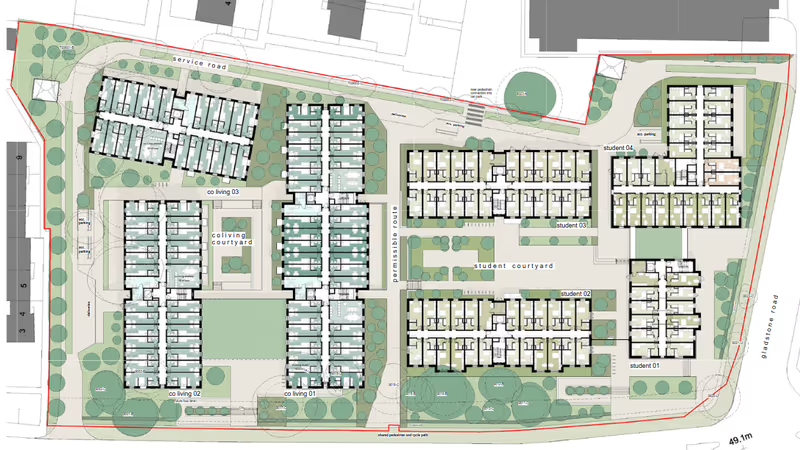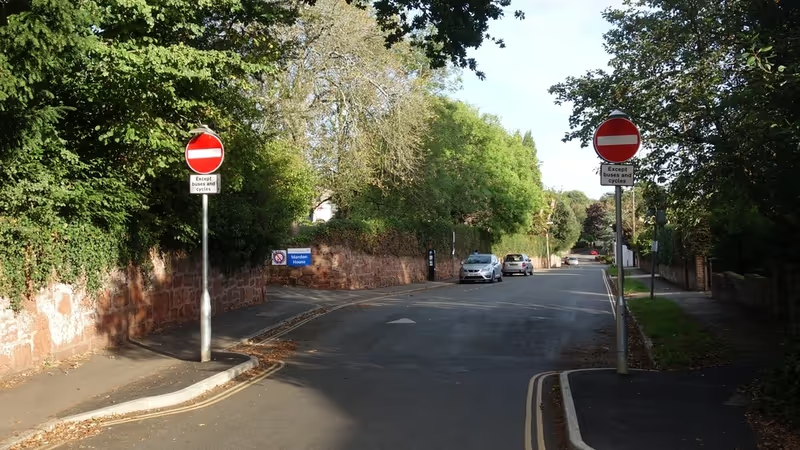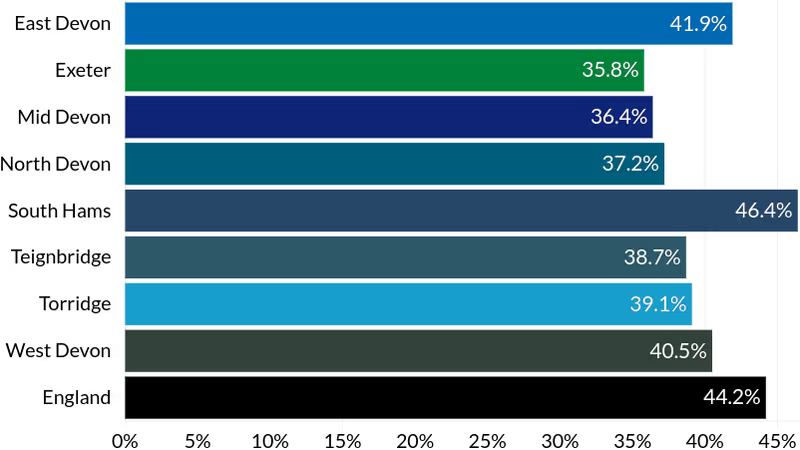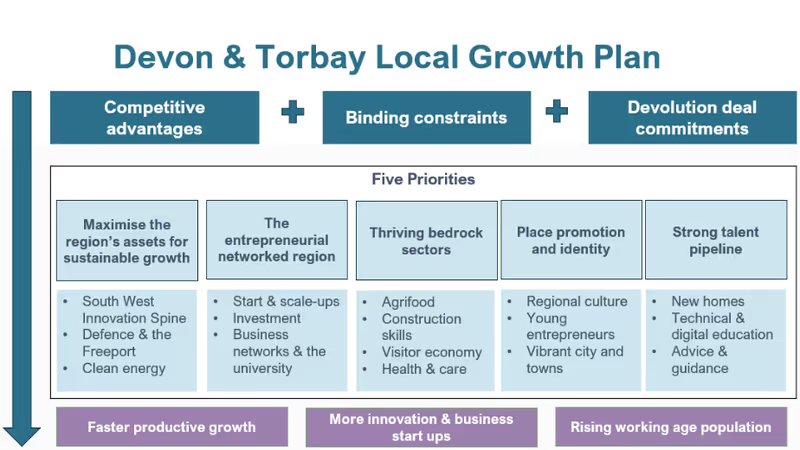The number of executive members on Exeter City Council’s planning committee has more than doubled since April 2016 to give the executive a built-in near two-thirds majority on planning policy and development decisions affecting the city.
No other planning authority in the south west peninsula follows this practice, where the highest proportion of executive members on other planning committees is only one third, and six local authorities have no executive members on their planning committees at all.
The Exeter City Council leader and the portfolio holder for city planning and development also sit on the committee, although doing so is contrary to national guidance from the Local Government Association Planning Advisory Service.
 St Sidwell’s Point development site after demolition
St Sidwell’s Point development site after demolition
It is a fundamental principle of the planning system in England that those who decide applications for development - whether for a garage extension or a major shopping centre - do so in accordance with planning law, national and local planning policies and the ethical standards expected of public office holders.
Most applications are decided by councillors or officers in local planning authorities, of which Exeter City Council is one.
The Planning Advisory Service, part of the Local Government Association and funded by central government, has been issuing guidance since 1992 on the legal and ethical considerations to be borne in mind by councillors when determining planning applications.
The latest edition, issued in December 2019, aims to ensure that “decisions on plan making and planning applications are undertaken, on behalf of communities, in a fair, impartial and transparent way”.
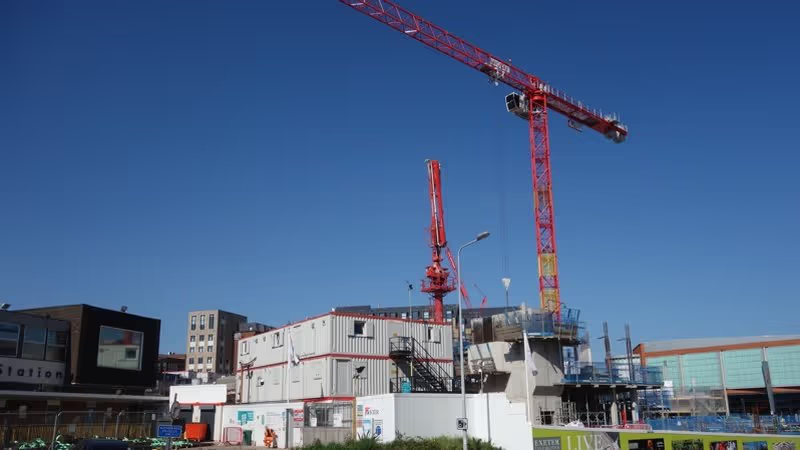 St Sidwell’s Point development under construction
St Sidwell’s Point development under construction
The Planning Advisory Service guidance says planning committee members “need to avoid any appearance of bias or having ‘predetermined’ views when making a decision on a planning application or policy”.
Predetermination involves a councillor entering a decision-making meeting with a closed mind either in favour of or against a specific planning application.
The guidance is unequivocal: “Avoiding predetermination and the impression of it is essential. The decision making process must be seen to be fair and impartial from the perspective of an external observer.
“If a decision maker has predetermined their position, they should withdraw from being a member of the decision making body for that matter.”
Planning decisions suspected of predetermination may be vulnerable to challenge by judicial review.
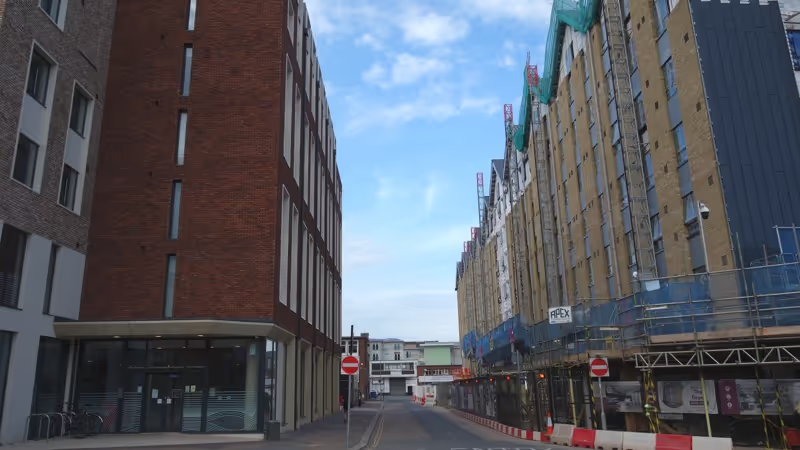 Bampfylde Street student accommodation blocks
Bampfylde Street student accommodation blocks
The Planning Advisory Service guidance also focusses on ‘predisposition’, where a planning committee member “may have a pre-existing opinion or attitude about the matter under discussion, but remains open to listening to all the arguments and changing their mind in light of the information presented at the meeting”.
It contains specific advice on the composition of planning committees intended to minimise the risks of predetermination, predisposition and other conflicts of interest:
“Local planning authorities will usually have a cabinet or executive member responsible for development and planning (sometimes known as the portfolio holder).
“Planning Advisory Service advise[s] that the leader and portfolio holder of a local authority, who play an important role driving planning policies and proposals, should normally exclude themselves from decision making committees.”
In Exeter, not only are the council leader and planning portfolio holder members of the planning committee, so are six other members of the executive.
With a total committee membership of thirteen, this arrangement gives the executive a built-in majority on planning decisions.
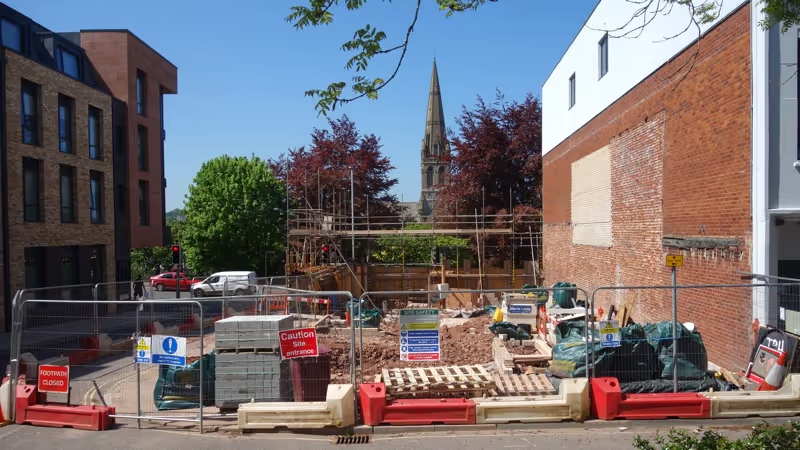 Mary Arches Street construction site
Mary Arches Street construction site
This has not happened by accident. In the month before the May 2016 council elections only three members of the executive sat on the planning committee. By June the committee had five executive members.
This was increased to six the following year and by June this year the number was seven, giving the executive its majority. The eighth was added in August, replacing committee chair Councillor Rachel Lyons who is not a member of the executive.
Last month Exeter Observer surveyed all other local planning authorities in Devon, Cornwall and Somerset. Six had no executive members on their planning committees at all, including Cornwall Council, Torbay Council and Plymouth City Council.
Of the rest, the proportion of executive members on the planning committee ranged from 8% to 33%. The proportion in Exeter is 62%.
We asked the city council’s press office for a statement explaining why the council was so out of line with its peers. After five weeks and with apologies for the delay, a press officer said:
“It is a matter for the leaders of the various political groups represented on the council to identify members of their groups for membership of all committees, including the planning committee, in accordance with the statutory requirement for political proportionality.
“The leader of the council therefore identified the relevant number of members from his group to sit on the planning committee.”
However this did not answer the question we asked, since political proportionality - the balance of councillors by party on the full council - is not at issue: Labour are entitled to ten of the thirteen planning committee seats.
In view of this we asked the council to reconsider its statement, but a spokesperson said there was nothing to add.
 Pinhoe construction site
Pinhoe construction site
We then asked council leader Phil Bialyk to comment. He responded with admirable alacrity, saying he was not sure what our concern was and stressing that members were appointed to the planning committee in line with the political proportionality rules.
We tried again with Councillor Bialyk, explaining that the number of Labour members on the committee was not at issue, and that what we were seeking was an explanation for the high number of members of the council’s executive on the planning committee.
We asked for an explanation of the council’s divergence from national guidance and the practice of neighbouring councils, and how he would answer the charge that Exeter City Council under his leadership “has stacked the membership of the planning committee to ensure that applications backed by the executive will inevitably be approved”.
He replied by saying he had nothing to add to his previous response.
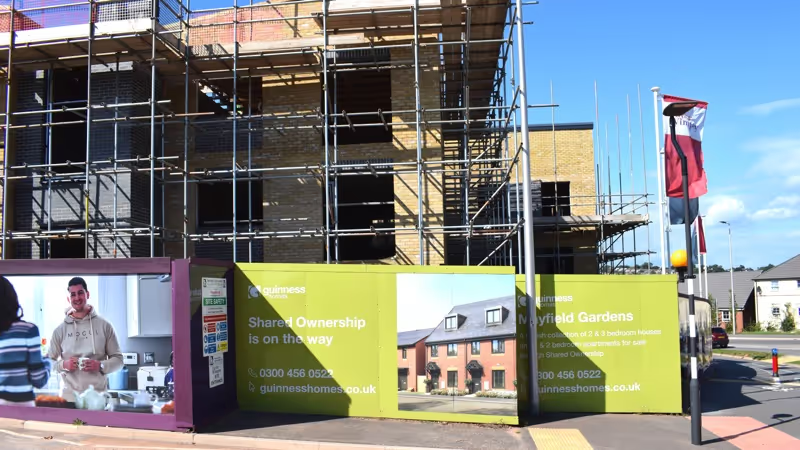 Monkerton construction site
Monkerton construction site
This is not an academic debate. Exeter City Council has embarked on a programme of major projects overseen by the unelected and unaccountable Liveable Exeter Place Board.
These include the construction of 12,000 new homes, the reconfiguration of the city in pursuit of carbon neutrality and the development of new sports and leisure facilities and transport infrastructure.
Much of this will involve the city council and its partners submitting applications for development, change of use of existing buildings and land and other matters controlled by the planning system.
The council’s own code of conduct for local planning (part 5j of the council’s constitution says: “Applications submitted by the city council and members or officers employed by the city council can give rise to a suspicion of impropriety by the public.
“This relates to both planning applications and development plan proposals.
“It is essential that they are handled in a way that gives no grounds for preferential treatment.”
The inclusion of the council leader and the city planning and development portfolio holder on the planning committee and the executive committee’s built-in majority on that committee create unnecessary risk by increasing opportunities to challenge planning decisions on procedural grounds.
Like cuts to council decision-making scrutiny, outsourcing carbon reduction policy to Exeter City Futures and allowing Liveable Exeter Place Board to decide parts of the city’s corporate plan, they also say more about the council’s intention to promote its agenda than its stated aspiration to be “a model of strong local democracy”.
